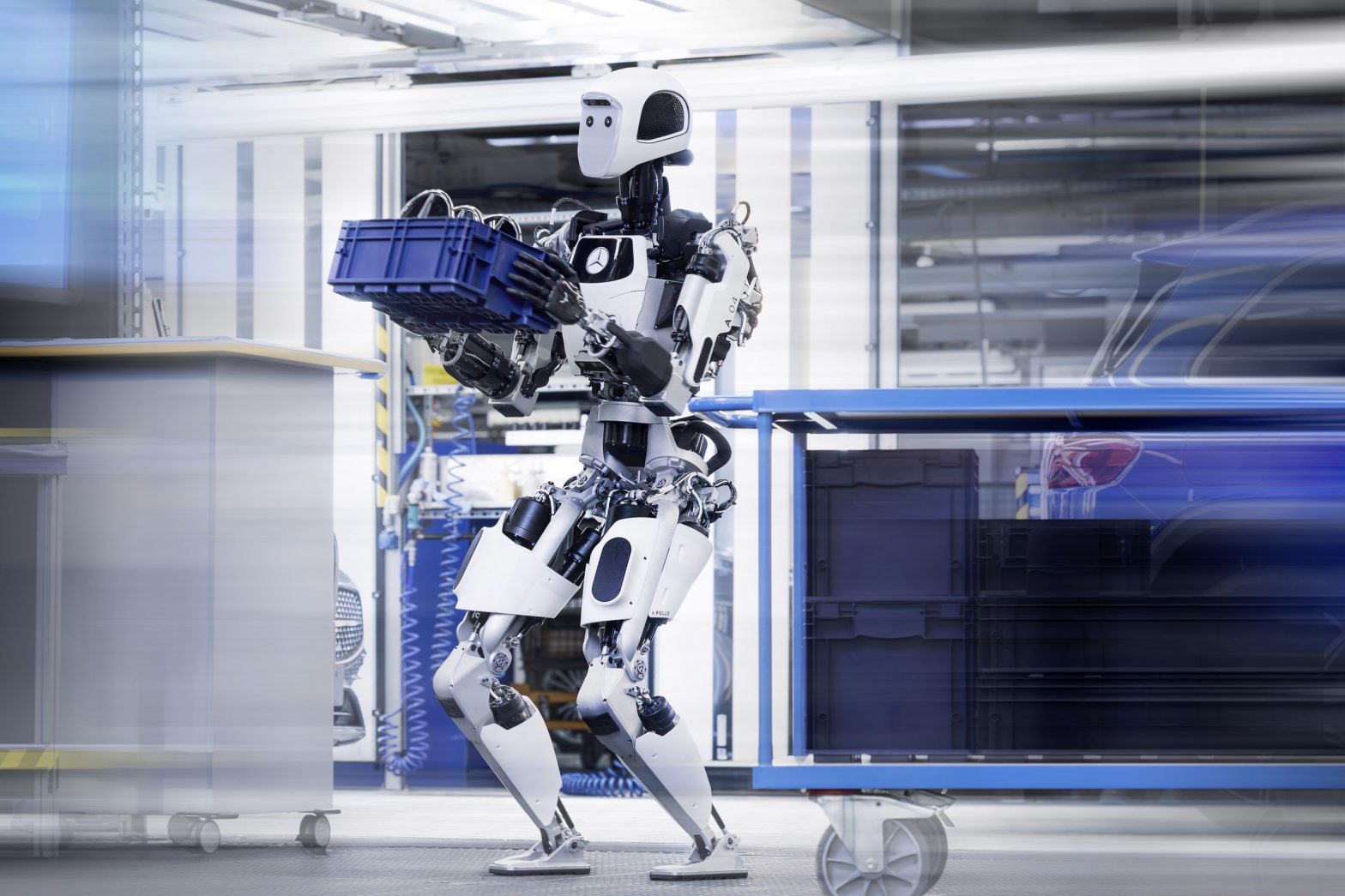/
Mercedes will initially examine how well Apptronik’s Apollo robot delivers parts to human production line workers.
Share this story
:format(webp)/cdn.vox-cdn.com/uploads/chorus_asset/file/25337601/24C0101_003.jpg)
Mercedes-Benz is the latest automotive company to trial how humanoid robots could be used to automate “low skill, physically challenging, manual labor.” On Friday, robotics company Apptronik announced it had entered into a commercial agreement with Mercedes to pilot how “highly advanced robotics” like Apollo — Apptronik’s 160-pound bipedal robot — can be used in manufacturing. The news follows a similar pilot announced by BMW in January.
Apptronik says that Mercedes is exploring use cases like having Apollo inspect and deliver components to human production line workers. Neither company has disclosed any figures for the agreement or how many Apollo robots are being trialed.
According to Apptronik, humanoid robots would allow vehicle manufacturers to start automating manufacturing tasks without having to redesign their existing facilities. The company says its approach instead “centers on automating some physically demanding, repetitive and dull tasks for which it is increasingly hard to find reliable workers.”
The Financial Times reports that Mercedes has started trialing an undisclosed number of Apollo robots at a factory in Hungary. The country has experienced labor shortages for several years as workers migrate to Western Europe, with Audi and Mercedes having both expressed concerns regarding labor supply in 2016.
“This is a new frontier and we want to understand the potential both for robotics and automotive manufacturing to fill labor gaps in areas such as low skill, repetitive and physically demanding work and to free up our highly skilled team members on the line to build the world’s most desirable cars,” said Mercedes’ production chief Jörg Burzer.
Apollo stands at five feet, eight inches tall, with Apptronik claiming the robot can lift objects up to 55 pounds. Its “face” is delightfully goofy, but otherwise its form factor isn’t too different from other humanoid robots in development, such as Tesla’s Optimus robot, or the Figure 01 robots that BMW is trialing at its South Carolina manufacturing facility. Other bipedal robots like Agility Robotics’ “Digit” are also being piloted in Amazon’s US warehouses.
